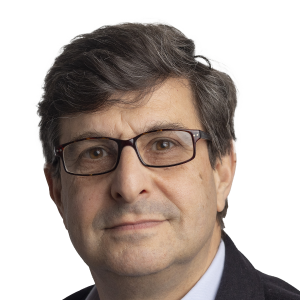Be glad someone had the courage to be Charlie


Roula Khalaf, Editor of the FT, selects her favourite stories in this weekly newsletter.
Je ne suis pas Charlie. I am not Charlie, I am not brave enough.
Across the world, and certainly across Twitter, people are showing solidarity with the murdered journalists of satirical French magazine Charlie Hebdo, proclaiming in black and white that they too share the values that got the cartoonists killed. Emotionally and morally I am entirely with that collective display — but actually I and almost all those declaring their solidarity are not Charlie because we simply do not have their courage.
Charlie Hebdo’s leaders were much, much braver than most of us; maddeningly, preposterously and — in the light of their barbarous end — recklessly brave. The kind of impossibly courageous people who actually change the world. As George Bernard Shaw noted, the “reasonable man adapts himself to the world while the unreasonable man persists in trying to adapt the world to himself”, and therefore “all progress depends upon the unreasonable man”. Charlie Hebdo was the unreasonable man. It joined the battle that has largely been left to the police and security services.
It is an easy thing to proclaim solidarity after their murder and it is heartwarming to see such a collective response. But in the end — like so many other examples of hashtag activism, like #bringbackourgirls campaign over kidnapped Nigerian schoolchildren — it will not make a difference, except to make us feel better. Some took to the streets but most of those declaring themselves to be Charlie did so from the safety of a social media account. I don’t criticise them for wanting to do this; I just don’t think most of us have earned the right.
Many, if not most, journalists would self-censor; they would draw back from publishing images that they know would seriously endanger themselves or their organisation — and after this week’s events one can hardly blame them. Companies have a duty of care to their staff and people have a duty of care to themselves and their families.
There is also a reasonable desire not to give unnecessary offence; but it would be dishonest for most writers and cartoonists to claim they would as willingly mock the Prophet Mohammed as they would Jesus. I may deplore the fact that media outlets are scared to run an offensive cartoon of the Prophet but would I really want one in any article I wrote? For all our brave talk about how freedom will win, about how you cannot silence satire, satire is being silenced.
To be Charlie you have to be ready to defy real death threats and firebomb attacks; to press on, like the murdered journalists, in the face of patent risks to your life while working under police protection (the dead included two officers). It is to continue publishing cartoons and jokes that you know will only inflame people who already need little incitement to kill. It is to hold your life and the fears of your family less dear than the absolute principle of freedom. It is to be so determined to fight the fascism of fundamentalists that you keep on publishing when all rational thought tells you to stop. These people were not just satirists; they were freedom fighters wilfully agitating a foe they knew to be deadly.
Every year dozens of journalists are killed and many more injured reporting from the most dangerous places in the world, exposing brutality, war crimes and injustice. Last year, 66 media workers died, according to Reporters Without Borders — a third of them in Syria and Ukraine. These people and their more fortunate colleagues could claim the courage to be Charlie — though not even they would dare to be so defiantly provocative and most, quite rightly, make every effort to minimise the risk to themselves.
But the rest of us, like me, who sit safely in an office in western Europe — or all those in other professions who would never contemplate taking the kind of risks those French journalists took daily — we are not Charlie. We are just glad that someone had the courage to be.
——————————————-
Letter in response to this column:
A reasonable response to an unreasonable request / From Harvey Cole
Comments